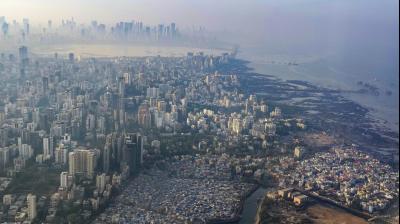Sickness fills air as mercury dips, pollution soars
There was a nip in the air Thursday morning, with minimum temperatures dropping to 18 degree Celsius, said IMD.
Mumbai: Problems related to breathing are on the rise due to dip in early morning temperatures since a week and air pollution, said doctors at civic hospitals. For the past week, the city has recorded temperatures as low as 18 degree Celsius till 8am, as per Indian Meteorological Department (IMD) figures. In the first three weeks of November, mercury levels have fallen up to two degrees below the normal temperature of 20 degree Celsius.
Dr Avinash Supe, dean, KEM Hospital, and director, major civic hospitals, said, “City hospitals have seen lots of patients seeking treatment for aggravated health problems such as asthma, emphysema, chronic bronchitis and other respiratory problems as well as eye irritation and reduced resistance to colds and lung infections.” Dr Supe said that on a daily basis, KEM’s Out Patient Department (OPD) was getting nearly 200 patients complaining of sore throat which was almost always caused by viral infection.
Citizens have been advised to exercise caution and avoid falling sick in this weather. Dr Supe told The Asian Age, “Excessive air pollution is responsible for respiratory diseases like bronchitis and asthma. In such weather conditions, cases of bronchitis are likely to increase in the city, primarily due to temperature fluctuations.”
“The immediate effects are cough, throat infections, and pneumonia viral fever, allergies, diarrhoea and malaria. Patients have started coming to the OPD with complaints of breathlessness, coughing, sneezing, and tightness in the chest, allergy and asthma complications,” he said.
J.J. Hospital’s head of ophthalmic department, Dr Ragini Parekh, told this newspaper, “After the dip in temperatures, patients suffering from eye rashes have increased. When a person contracts such rashes, don’t self-treat, don’t take steroids and avoid touching the eyes. It spreads because of touching.”
“If a person has such an infection, it is very important to keep such a patient in isolation till the infection clears. Everybody else around them should wash their hand with soap and water,” she said.
There was a nip in the air Thursday morning, with minimum temperatures dropping to 18 degree Celsius, said IMD.
Pollution’s contribution
There is a rise in infections of the upper respiratory tract, especially in senior citizens and small children since there is an increase in air pollution which attacks the respiratory system, says Dr Om Shrivastav, infectious diseases expert, attached to Kasturba Hospital.


















